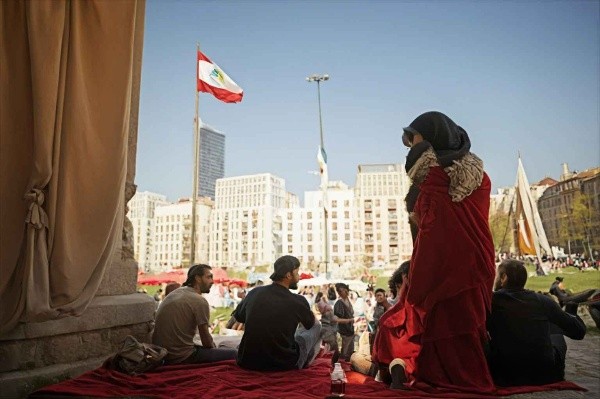Iran’s Plan to Strike Back Against the U.S.
Iran’s Military Preparations Following U.S. Attacks
Loading...

Many of Nasrallah’s supporters have expressed anguish and disbelief after Israel assassinated the Hezbollah leader.
A Community in Shock
On a fateful Friday evening, the tranquility of Beirut was shattered as Israeli warplanes unleashed a devastating airstrike that claimed the life of Hezbollah leader Hassan Nasrallah. The attack, which also resulted in civilian casualties in Dahiyeh, a southern suburb of the Lebanese capital, left many residents in a state of disbelief and despair. Mariam, a local resident, recounted the harrowing experience of fleeing her home amidst the chaos. “When I first heard the news, I thought it was a lie. I thought, ‘It can’t be true’,” she shared, tears welling in her eyes. For her and many others, Nasrallah was not just a political figure; he was a source of safety and strength.
A Legacy of Leadership
Hassan Nasrallah ascended to the leadership of Hezbollah in 1992, following the assassination of his predecessor, Abbas al-Musawi. Under his guidance, Hezbollah transformed from a rebel group into a formidable military force, successfully liberating southern Lebanon from Israeli occupation. This achievement earned him widespread admiration and respect, particularly among Lebanese Shia Muslims, who viewed him as a hero standing against Israeli aggression. His leadership style, characterized by charisma and strategic acumen, solidified his status as one of the most influential figures in the Middle East.
However, Nasrallah's legacy is complex. His decision to intervene in the Syrian civil war to support President Bashar al-Assad drew criticism and diminished his popularity in some circles. Despite this, many of his staunch supporters remained loyal, believing that he was the only leader capable of protecting Lebanon from external threats.
Mourning a Martyr
In the wake of Nasrallah's death, displaced families from Dahiyeh gathered in downtown Beirut, expressing their grief and reverence for the fallen leader. Nivine, a Hezbollah supporter, described him as a “martyr” who dedicated his life to resisting Israeli forces. “He was like a father to us. He wasn’t just a politician,” she said, emphasizing the deep emotional connection many felt towards him. Nivine vowed to continue his fight against Israel, reflecting the sentiments of many who see themselves as part of a larger resistance movement.
Fear and Uncertainty
The loss of Nasrallah has left many Lebanese Shia Muslims grappling with fear and uncertainty about their future. With Hezbollah facing significant losses, including senior commanders, there is a palpable sense of vulnerability among the community. “Don’t you see all the crimes of Israel? They are bombing and destroying everything,” Nivine lamented, highlighting the dire situation in which they find themselves. Despite the challenges, she and others remain hopeful that Hezbollah will endure and continue its mission.
Hassan, a 25-year-old resident, echoed these sentiments, asserting that the resistance would persist despite the sacrifices. He viewed Nasrallah as a symbol of defiance against oppression, particularly in light of the ongoing conflict in Gaza. “He stood up for Gaza,” he said, acknowledging the heavy toll of Nasrallah's commitment to the Palestinian cause.
An Uncertain Future
As the dust settles from the recent violence, many, including Mohamad, a Syrian national living in Lebanon, are left contemplating the future. “We will remember him as the one that stood up to the Zionists,” he reflected, but expressed concern over the escalating violence and its implications for the region. The fear of further bombings and instability looms large, leaving residents like Mariam feeling lost and uncertain.
Mariam, who fled her home with her family, mourns not only the loss of her neighborhood but also the sense of security that Nasrallah provided. “We felt safe when he was here with us,” she said, her voice trembling. The community's grief is palpable, as they navigate the aftermath of loss and the daunting question of what lies ahead for Lebanon without their leader.
Editor
Iran’s Military Preparations Following U.S. Attacks
Troops remain in five strategic locations, raising fears of renewed tensions and long-term occupation.
Opposition forces have taken control of the capital after a significant offensive. Here is how it unravelled.
